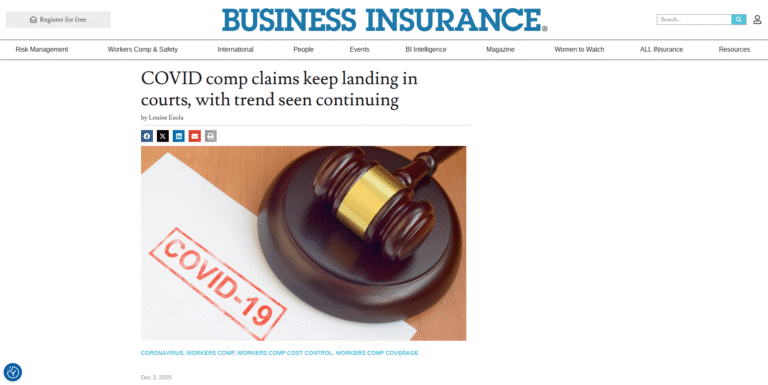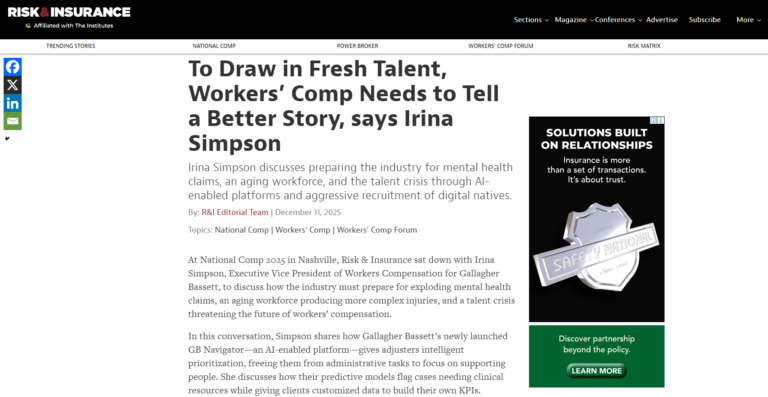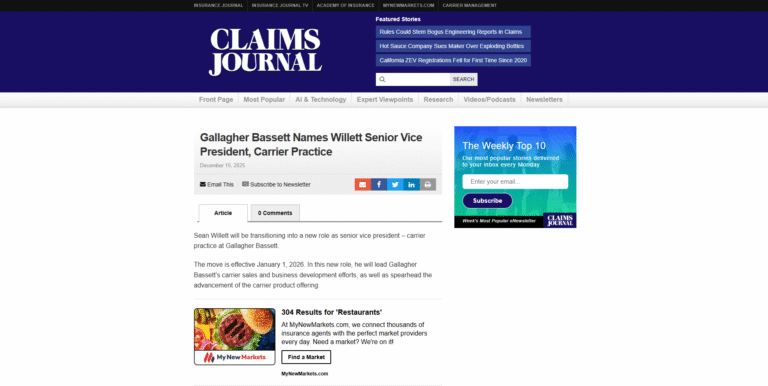File resolution is on everyone’s wish list – and prioritizing case closures delivers dividends for all involved that far exceed finishing the year with a clean desk:
- Claimants gain the certainty of resolution, receive their funds, and can enjoy the holiday season without the pressure of their lingering claim. Importantly, receiving fair compensation for their injuries or other losses before the holidays also allows for outstanding medical bills or expenses to be settled, delivering peace of mind and the flexibility to utilize funds during a holiday season that is challenged by economic uncertainties and increasing expenses.
- Carriers have finality as to the loss cost and expenses associated with various claims, no longer need to worry about adverse reserve development, can accurately understand the results of their underwriting decisions, and can commence analysis of their 2021 portfolios and pricing decisions.
- MGAs and program administrators can evaluate the performance of their programs, the results of the insureds within those programs, and accurately calculate various loss ratios.
- Captives and carriers can more accurately review the collateral necessary for 2021 and beyond knowing that files have been resolved and there is no additional exposure on those matters.
- Lawyers, funding entities, structure settlement firms, and other providers all have their payments by year end for tax planning, cash flow, and other purposes.
- And last but not least, TPAs and carriers can more accurately assess the claim inventory of their claims professionals if certain matters do not resolve by year end as they approach 2021, including re-evaluating plans of action and reserves.
Closing cases amid COVID courtroom closedowns
Given the current climate, it’s likely that juries won’t re-enter courtrooms until the second or third quarter of 2021 at best. This presents a need to pursue, where feasible, alternative options for closing cases in a timely manner – such as online dispute resolution (ODR).
Claims professionals and legal practitioners would agree that most lawsuits resolve before trial – and that mediation is an effective tool for settling claims. But until recently, online mediation has largely been eschewed by counsel due to the belief that interacting by electronic means is not as effective as face-to-face discussion. While that may be true in some respects, the current environment has proven that, for many cases, online mediation can be as effective as face-to-face. In fact, it may be preferable.
In many of the common personal-injury claims (such as automobile collisions, or ‘slip and falls’), general liability claims or workers’ compensation matters, often mediation centers around parties agreeing on an acceptable settlement amount, and how to bring them to that point under the particular circumstances of the case. That is not to say the discussions are simplistic, or that there aren’t other issues involved that need to be addressed. However, these elements are often ancillary to the ultimate financial stance of the parties and involve less emotion than, say, a divorce or contentious commercial dispute.
Accordingly, the online environment allows for very effective discussions – these claims are typically two- or three-party disputes, making an online mediation relatively simple to navigate. For the nay-sayers, reports over the past several months have indicated that settlement rates have not dipped since mediation has moved almost exclusively online.
A more convenient way to close cases for the holiday season
It’s hard to beat the convenience (and potential for cost savings) of online communication. Eliminating the expense and risk of travel (mitigating bad weather, delayed flights, and the corresponding cancelled mediations) presents wins for all parties, including out-of-state plaintiffs and insurance adjusters – with savings achieved by the latter able to go towards indemnity rather than expense, thereby increasing the chances of settlement. Coordinating structured-settlement brokers, videographers, translators, and stenographers is simplified; mediator travel time is eliminated; and reports show that online mediations run slightly shorter than face-to-face, offering additional potential savings.
While Gallagher Bassett supports our clients with thorough investigations where cases do proceed to litigation (from preparing files and liaising with lawyers to preserving evidence and finding and securing witnesses), data we’ve collated across decades of claims and supported by industry findings show that less than 5% of claims go to a full trial. So, it makes sense that, in this challenging time, carriers pursue ODR as a means to closing the year with their house in order.
It is likely we will continue to recognize new benefits of ODR as we expand its use. We look forward to discussing how we can help you bring resolution to your files and get 2021 off to a fresh start.






